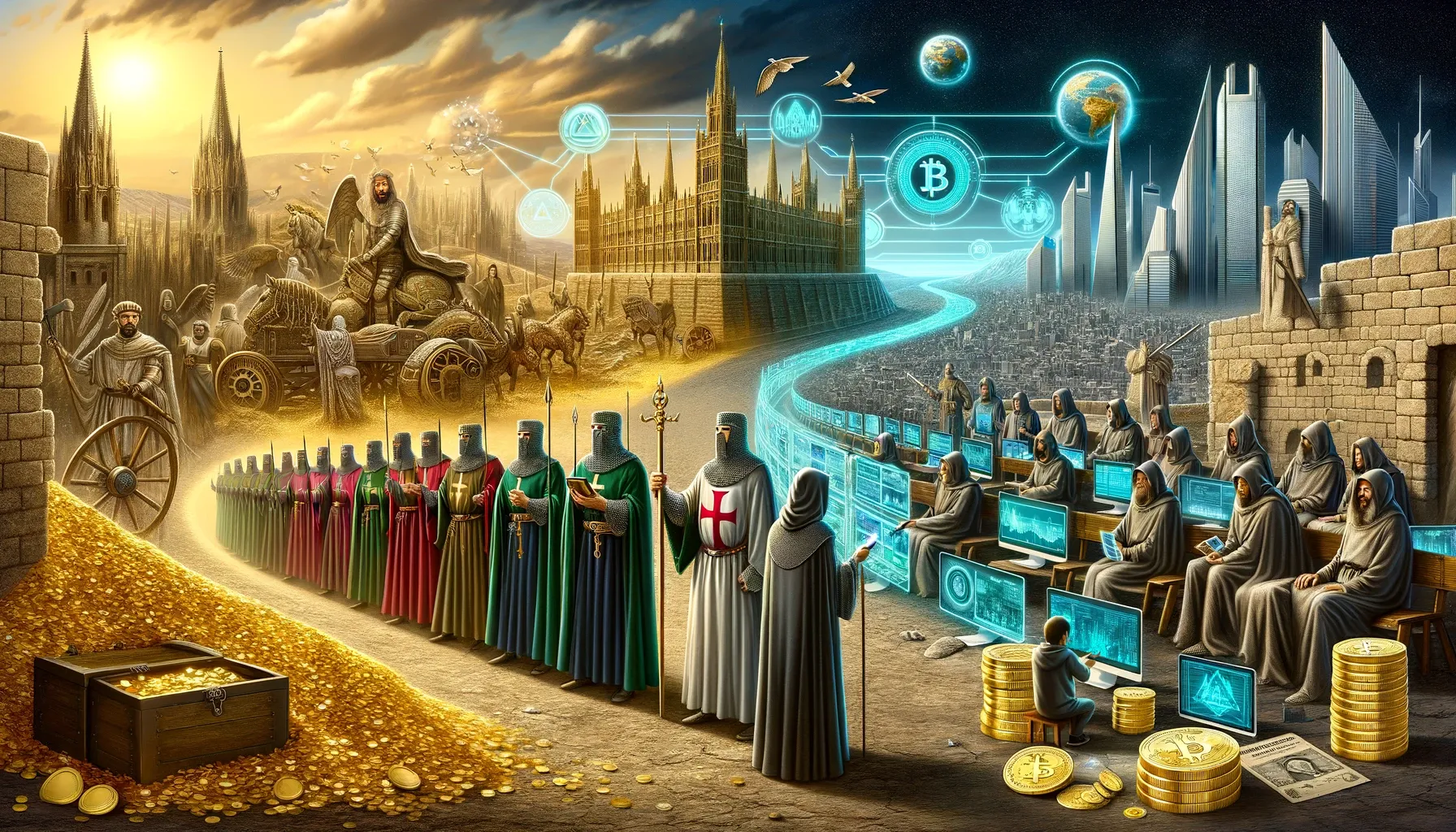From Solomon's Gold to Digital Treasures: The Evolution of Banking
In a world where tales of King Solomon's immense wealth are not just legends but the bedrock of our understanding of wealth accumulation, we embark on a captivating journey through the annals of banking history. This saga begins with the splendor of Solomon's fortune, a testament
In a world where tales of King Solomon's immense wealth are not just legends but the bedrock of our understanding of wealth accumulation, we embark on a captivating journey through the annals of banking history. This saga begins with the splendor of Solomon's fortune, a testament to the profound impact of wealth on societal structures and governance, setting the stage for the intricate evolution of banking—a cornerstone of modern economies and a pivotal force in societal shaping.
The Dawn of Financial Innovation: The Knights Templar
Transitioning from ancient tales to the Middle Ages, we encounter the Knights Templar, warrior monks who introduced an innovative financial system resembling modern banking. Initially tasked with protecting Christian pilgrims, their role evolved, offering safekeeping services and creating a system of credit notes, laying the groundwork for contemporary banking practices. Their pioneering approach to financial security and trust marked a significant evolution from physical treasures to the abstract concepts of credit and banking.
Eastern Wisdom Meets Western Practice
The narrative then weaves through the rich tapestry of Asian financial practices, highlighting the invention of paper money in China as a pivotal moment that enriched and diversified the global banking system. This period of financial history showcases the integration of Eastern and Western philosophies, bringing ideas of balance, sustainability, and communal welfare into the global financial narrative, enriching the predominantly profit-driven Western models and paving the way for a more interconnected and complex global economy.
The Digital Banking Revolution
As we venture into the modern era, the advent of digital banking and cryptocurrencies heralds a transformative shift in financial transactions. This digital revolution raises critical questions about trust, security, and the essence of money, challenging traditional banking models with the introduction of blockchain technology and decentralized finance. The banking sector stands at a pivotal moment with the emergence of Central Bank Digital Currencies (CBDCs), echoing the innovative spirit of the Templars and ancient financial wisdom.
Envisioning the Future of Finance
Looking ahead, the banking sector is poised for a transformative era with digital currencies and blockchain technology leading the charge. These advancements promise to democratize finance but also present challenges related to regulation, security, and the digital divide. As we navigate these changes, the philosophical debates surrounding money, trust, and governance gain new relevance, reflecting humanity's enduring quest for innovation and adaptation.
This journey from Solomon's gold to digital treasures not only charts the technical progress of banking but also celebrates the timeless human values of trust, cooperation, and the pursuit of the common good that underlie our financial systems. Through this exploration, we are reminded of the dynamic evolution of banking, from tangible assets to the digital frontiers of finance, underscoring the sector's role in ensuring the stability and prosperity of societies in an ever-changing world.





